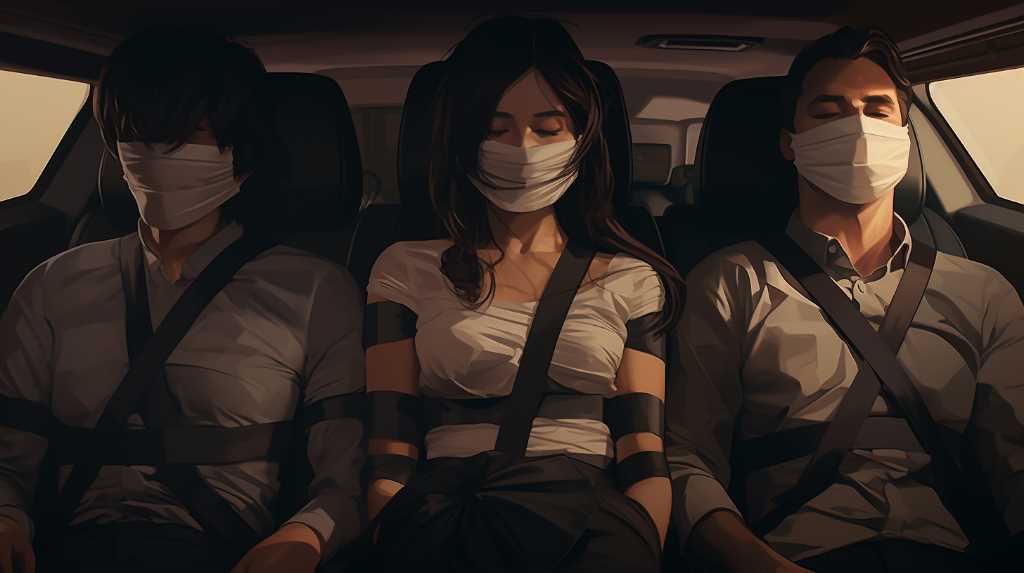
After a car crash, people often hurt in different ways. The most common injury is whiplash, which is when your neck hurts because your head moved suddenly and forcefully. This can make your neck hurt for a long time.
Many people also get back pain, which can lead to serious spine problems. Headaches or even migraines are common too, and they can last a long time after the crash. If you held on tight during the crash, your shoulders and arms might hurt as well.
It’s not just about physical pain; crashes can make you feel stressed and anxious, which can make the pain feel worse. Knowing about these injuries is important because it helps doctors treat you better and helps you get better faster.
Whiplash and Neck Strain
Whiplash happens a lot after being hit from behind in a car, and it can really make your neck hurt. It’s like your neck snaps forward and back super fast, just like a whip.
When you see a doctor, they’ll look for signs like neck pain, not being able to move well, headaches, and feeling dizzy. They figure out if it’s whiplash by talking to you about what happened and checking your neck. If the injury looks really bad, they might take an X-ray or a scan to make sure your neck bones are okay.
The main goal in treating whiplash is to ease the pain and help you move normally again. Most people get better by resting, going to physical therapy, and maybe taking some pain medicine. It’s really important to start treatment quickly so you don’t end up with long-term pain and can get back to your everyday life sooner.
Back Pain Complications
If you’ve been in a car crash, you might start feeling a lot of back pain. This pain could come right after the accident or show up later because of other injuries like whiplash. It’s important to know that back pain can be a sign of muscle or ligament injuries, or even broken bones in your spine. That’s why you need to see a doctor who can check you out properly.
They might use X-rays or MRI scans to look for any damage to your bones or the soft parts of your back. To treat this pain, you might need medicine, physical therapy, or sometimes even surgery. It’s really important to follow a recovery plan made just for you. This helps you get better faster and stops the pain from becoming a long-term problem.
Learning how to move and work in ways that are easy on your back is also key to staying pain-free after your accident.
Headaches and Migraines
Traumatic brain injuries sustained in car accidents often manifest as persistent headaches and migraines, significantly impacting a victim’s quality of life. These post-traumatic headaches can mimic tension-type headaches or migraines, presenting a clinical challenge. They may occur immediately or develop over time, complicating diagnosis and treatment. Evidence suggests that inflammation, neck injuries, and even emotional stress post-accident can contribute to the onset of these symptoms.
Patient-focused management includes a comprehensive evaluation to rule out secondary causes and may involve pharmacological treatments, physical therapy, and cognitive-behavioral strategies to mitigate pain and associated distress. It is critical for healthcare providers to recognize the multifaceted nature of post-traumatic headaches, ensuring a tailored approach that addresses both the neurological and psychosocial elements of recovery.
Shoulder and Arm Discomfort
People who have had accidents often get headaches and may feel pain in their shoulders and arms, too. This pain can be just a bit annoying or so bad that it stops them from doing their everyday tasks. It usually comes from injuries to muscles or ligaments, like pulls or twists.
Sometimes, though, it might show a bigger problem, such as a torn rotator cuff or a neck injury. Doctors usually check for these issues by examining the person and sometimes by taking X-rays or doing MRI scans to find out exactly what’s wrong.
The way they treat the pain depends on the person, but often includes managing the pain, exercises in physical therapy, and sometimes surgery. It’s important to start treatment early and make sure it’s the right kind to help people heal properly and avoid more problems after an accident.
Psychological Impact and Stress
Car crashes don’t just hurt the body; they can also hurt the mind, causing problems like anxiety, depression, or PTSD. The shock of a crash can make people scared to drive or even ride in a car.
If someone gets help for these feelings early on, they might not have as much trouble later. Doctors should check on how patients are feeling inside, not just their physical injuries. Sometimes, people need to talk to a mental health professional for extra support.
To truly help someone recover, it’s important to look after both their physical injuries and their emotional scars.
Conclusion
To wrap things up, after a car crash, you might deal with several types of pain. This can include neck injuries like whiplash, backaches, headaches, sore shoulders, and even emotional upset.
It’s crucial to see a doctor right away and get the right treatment. The best way to heal is with treatments that fit your specific injuries and mental health needs.
For a full recovery, you might need a team of health pros, like doctors, physical therapists, and counselors. They work together to help you get better all around.